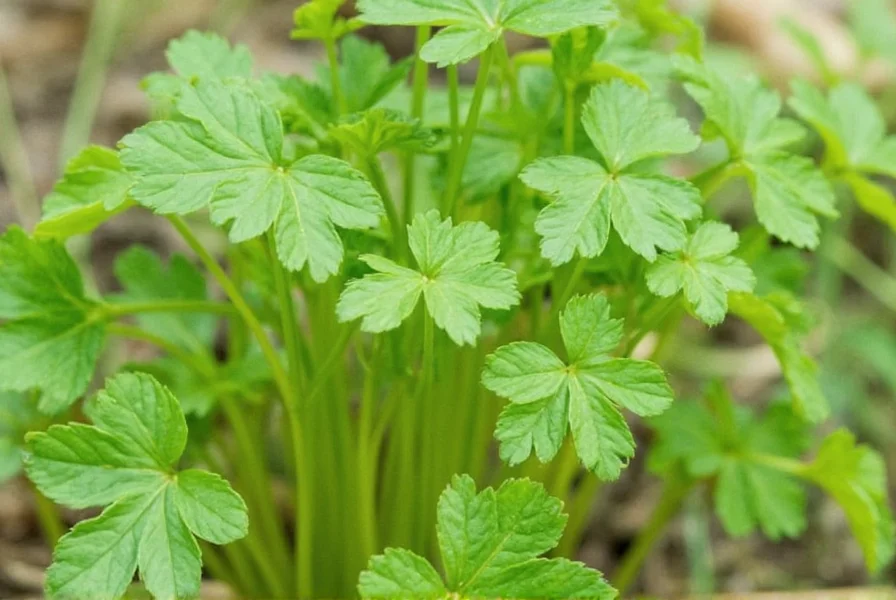Coriander has been used for centuries in traditional medicine systems across Asia, the Middle East, and Latin America. Modern scientific research is now validating many of these traditional uses, revealing the impressive nutritional profile and therapeutic potential of this versatile herb. Whether you're using the fresh leaves (cilantro) in your salsa or incorporating the dried seeds into spice blends, coriander delivers significant health advantages backed by growing scientific evidence.
Nutritional Profile of Coriander
Understanding coriander's health benefits begins with examining its impressive nutritional composition. Both the leaves and seeds offer unique nutritional profiles:
| Nutrient | Per 100g Fresh Leaves | Per 100g Seeds |
|---|---|---|
| Vitamin A | 6748 IU (135% DV) | 87 IU |
| Vitamin C | 27 mg (45% DV) | 21 mg (35% DV) |
| Vitamin K | 310 mcg (388% DV) | 31 mcg (39% DV) |
| Iron | 1.77 mg (10% DV) | 17.47 mg (97% DV) |
| Manganese | 0.3 mg (13% DV) | 2.9 mg (126% DV) |
The fresh leaves are particularly rich in vitamins A and K, while the seeds contain higher concentrations of minerals like iron and manganese. Both forms contain beneficial phytochemicals including linalool, quercetin, and terpenes that contribute to their health-promoting properties.

Science-Backed Health Benefits of Coriander
Powerful Antioxidant Properties
Coriander contains numerous antioxidants that combat oxidative stress in the body. Research published in the Journal of Agricultural and Food Chemistry identified more than 20 different antioxidant compounds in coriander seeds, including flavonoids and phenolic acids. These compounds help neutralize free radicals, potentially reducing cellular damage that contributes to chronic diseases and aging. The antioxidant capacity of coriander makes it particularly valuable for supporting overall cellular health and preventing oxidative damage.
Blood Sugar Regulation
Multiple studies suggest coriander may help regulate blood glucose levels. A 2020 review in Nutrients highlighted that coriander seed extract demonstrated significant hypoglycemic effects in animal studies, potentially through stimulating insulin secretion and improving insulin sensitivity. Human clinical trials are still limited but promising, with one study showing that consuming coriander powder reduced fasting blood glucose levels in participants with type 2 diabetes. Understanding coriander for blood sugar control could provide natural support alongside conventional diabetes management approaches.
Heart Health Support
Coriander benefits extend to cardiovascular health through several mechanisms. Research indicates that coriander may help lower LDL ("bad") cholesterol while maintaining or increasing HDL ("good") cholesterol levels. A study in the Journal of Ethnopharmacology found that coriander seed extract reduced total cholesterol and triglycerides in animal models. Additionally, the potassium content in fresh coriander leaves helps regulate blood pressure by counteracting sodium effects. The combined effect of these properties makes coriander a valuable dietary component for maintaining healthy heart function.
Digestive System Benefits
Traditional medicine systems have long used coriander for digestive issues, and modern science supports these applications. Coriander stimulates the production of digestive enzymes and bile, which aids in the breakdown and absorption of nutrients. Research published in Food Science & Nutrition demonstrated that coriander seed oil has antispasmodic effects that can relieve gastrointestinal cramping and bloating. How to use coriander for digestion is simple—adding fresh leaves to meals or drinking coriander seed tea after eating can support healthy digestion and reduce discomfort.
Anti-Inflammatory Effects
Chronic inflammation underlies many health conditions, and coriander shows promise as a natural anti-inflammatory agent. Studies have identified compounds in coriander that inhibit inflammatory pathways in the body. A 2019 study in Phytotherapy Research found that coriander seed extract reduced markers of inflammation in laboratory tests. These anti-inflammatory properties may contribute to coriander's potential benefits for conditions like arthritis and other inflammatory disorders.
Different Forms of Coriander and Their Unique Benefits
Coriander benefits vary depending on whether you consume the fresh leaves, dried seeds, or essential oil:
- Fresh coriander leaves (cilantro): Highest in vitamins A and K, excellent for salads, salsas, and garnishes. Best consumed raw to preserve heat-sensitive nutrients.
- Coriander seeds: Richer in minerals and certain antioxidants, particularly beneficial for blood sugar regulation. Can be used whole, ground, or as a tea.
- Coriander essential oil: Concentrated form with potent antimicrobial properties, typically used diluted for topical applications or aromatherapy.
Coriander seeds vs fresh coriander benefits differ primarily in their phytochemical composition—seeds contain higher concentrations of certain compounds like linalool, while fresh leaves provide more vitamin content. Both forms offer valuable health advantages, making it worthwhile to incorporate both into your diet.
How to Maximize Coriander's Health Benefits
To get the most from coriander's nutritional profile, consider these practical approaches:
- Add fresh coriander to salads, smoothies, and guacamole to preserve heat-sensitive nutrients
- Toast coriander seeds lightly before grinding to enhance flavor and bioavailability of compounds
- Make coriander seed tea by steeping 1-2 teaspoons of crushed seeds in hot water for 10 minutes
- Combine coriander with healthy fats like olive oil or avocado to improve absorption of fat-soluble nutrients
- Store fresh coriander properly by placing stems in water and covering loosely with a plastic bag in the refrigerator
Potential Side Effects and Considerations
While coriander is generally safe for most people when consumed in food amounts, some considerations exist:
- Some individuals report a soapy taste perception due to genetic factors affecting odor receptors
- Rare cases of allergic reactions, particularly in people sensitive to related plants like carrots or celery
- Coriander may interact with certain medications, particularly blood thinners due to vitamin K content
- Excessive consumption of coriander seed oil may cause skin irritation when applied topically
As with any dietary change, consult your healthcare provider if you have specific health conditions or concerns, especially if considering coriander supplements rather than culinary use.
Conclusion
Coriander offers a remarkable range of science-backed health benefits that extend far beyond its culinary appeal. From its potent antioxidant properties to its potential role in blood sugar regulation and heart health, this versatile herb deserves a regular place in a health-conscious diet. The scientific evidence for coriander health benefits continues to grow, supporting many of the traditional uses that have been recognized for centuries. By incorporating both fresh leaves and seeds into your meals, you can maximize the diverse nutritional advantages this plant provides while enjoying its distinctive flavor.
What are the main health benefits of coriander leaves?
Coriander leaves provide significant amounts of vitamins A, C, and K, along with antioxidant compounds that support immune function and reduce oxidative stress. They aid digestion, may help lower blood pressure due to potassium content, and contain compounds with potential anti-inflammatory effects. The fresh leaves are particularly valuable when consumed raw in salads, salsas, and as garnishes to preserve their heat-sensitive nutrients.
Can coriander help lower blood sugar levels?
Yes, several studies suggest coriander may help regulate blood sugar. Research shows coriander seed extract can stimulate insulin secretion and improve insulin sensitivity. A clinical study found that consuming coriander powder reduced fasting blood glucose levels in people with type 2 diabetes. However, it should complement—not replace—standard diabetes management approaches under medical supervision.
What's the difference between cilantro and coriander?
Cilantro refers to the fresh leaves and stems of the Coriandrum sativum plant, while coriander typically refers to the dried seeds. They have different flavor profiles and nutritional compositions—cilantro is higher in vitamins A and K, while coriander seeds contain more minerals like iron and manganese. Both offer health benefits, but the seeds have been more extensively studied for blood sugar regulation and cholesterol management.
How much coriander should I consume daily for health benefits?
There's no established daily requirement, but incorporating 1-2 tablespoons of fresh coriander leaves or 1-2 teaspoons of coriander seeds into your daily meals provides meaningful health benefits. You can add fresh leaves to salads, smoothies, or as garnish, and use seeds in cooking, teas, or spice blends. Consistent moderate consumption as part of a balanced diet yields better results than occasional large amounts.
Are there any side effects of consuming too much coriander?
When consumed in typical culinary amounts, coriander is safe for most people. However, excessive consumption might cause digestive discomfort in sensitive individuals. Those on blood-thinning medications should monitor intake due to coriander's vitamin K content. Rare allergic reactions can occur, particularly in people sensitive to plants in the Apiaceae family. The soapy taste perception some people experience is genetic and harmless, though it may affect enjoyment.











 浙公网安备
33010002000092号
浙公网安备
33010002000092号 浙B2-20120091-4
浙B2-20120091-4